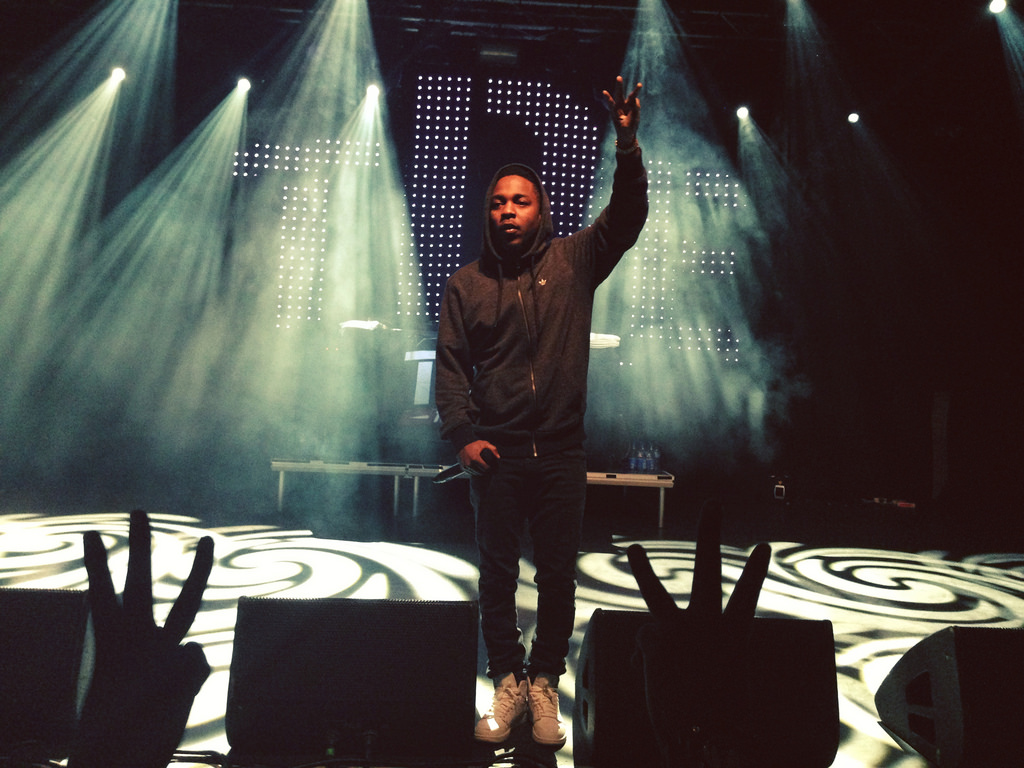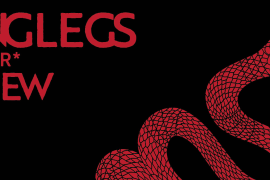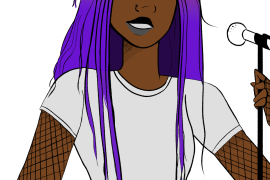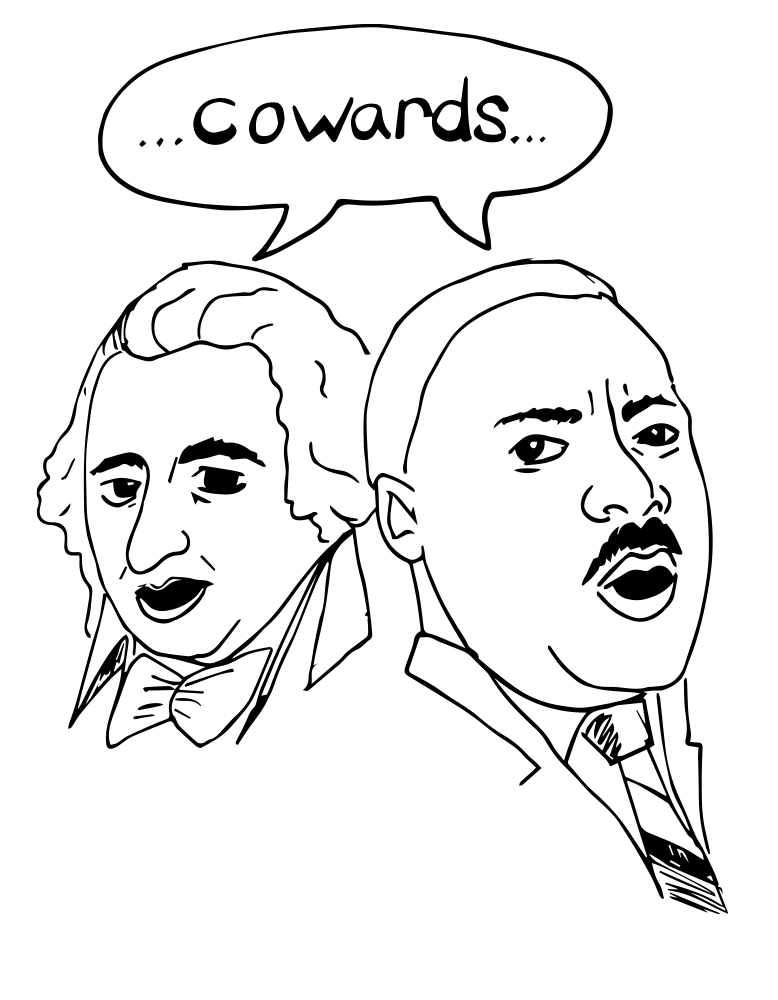A cage rose around a seated Kendrick Lamar as a fog machine started whirring again. It was the final performance to a scathingly hot weekend at Coachella. The listless crowd, hampered by days of dehydration and hangovers, jumped alive immediately when King Kendrick announced his presence. Forgoing backtracks made his masterful performance stand out, a move reserved only for the highest tier of hip-hop performers. Kendrick Lamar’s album “DAMN” had dropped only two days earlier with rumors of another album being released swam in the air. Technicolor lights refracted off Kung-Fu Kenny’s stark white kung-fu uniform as smoke filled the stage and even though the album just dropped, everybody chanted along as if “DAMN” was released years ago—a testament to the cultish popularity of K-Dot.
Kendrick Lamar isn’t who you’d expect a multi-millionaire rapper to be. He’s been with his highschool sweetheart for 10 years, doesn’t gangbang, smoke, or drink, and still lives in a modest condo in Compton. He’s humble enough to anonymously donate millions to the local public school system, only to be outed by his family years after. The community loves him because he always comes back. Lamar spits in “ELEMENT,” “I don’t do it for the ‘Gram, I do it for Compton.” Compton is his home and he isn’t running away.
“DAMN” rises to the occasion as Kendrick Lamar continues to produce music that is universally praised while encapsulating the Black-American experience with conscious rap. After his last three albums reached critical acclaim, it’s not surprising that Kendrick continues to dominate the hip-hop world. According to Billboard, “DAMN” sold 475,000 units within the first week of sales—the number one album of this year so far. The most commercially popular song, “HUMBLE,” reached number two in HOT 100 SONGS, the most successful rap song since Eminem and Rihanna’s “Love the Way You Lie” in 2010.
Compared to his last album, “DAMN” is a far more tempered examination of Kendrick’s personal life. Tracks like “DUCKWORTH” are a narrative retelling of Anthony “Top Dawg” Tiffith (Kendrick’s record label is Top Dawg Entertainment) and Kendrick’s father Kenneth “Ducky” Duckworth. Articulating a story about how Duckworth insured safety for himself and his family by giving out free food to gangbangers like Top Dawg while he worked at the local KFC. Kendrick raps, “Because if Anthony killed Ducky/ Top Dawg could be servin’ life/ While I grew up without a father and die in a gunfight.”
The erratic, discomforting beats of his 2015 album “To Pimp a Butterfly” metamorphosize into “DAMN’s” lo-fi hip-hop trap with flares of 90’s west coast beats, reflecting preceding Compton MCs such as NWA and Tupac. It’s crowned with titillating industrial production to enliven ears using backwards looped verses, metallic grinding, and ringing police sirens. These display Kendrick’s inner chaos through tracks laden with juxtaposing beats and swaying rhythm, all the while maintaining clean tracks. Some tracks may show influences of Andre 3000 or Drake (OG Drake, not Jamaican culture vulture Drake), but Kendrick sounds as good—if not better—and unmistakably retains his witty prose and turbulent flow.
It wouldn’t be Lamar without enthralling, crisp storytelling. Reaching deep into himself, this is, arguably, his most personal album so far. Each song’s title is frank with minimalists labels such as “LOVE,” “GOD,” and “DNA.” Flowing in and out of the perspectives of his mother (he’s been sampling his mom since his 2012 album “Good Kid MAAD City”), other rappers, his fans, and different caricatures of himself, Lamar creates a panoramic view of the absurdity in his life while he screams “don’t judge me” to God.
The combination of his masterful storytelling, clear production, and prodigious lyricism have launched Kendrick Lamar onto front stage once again. Critics point at how the album isn’t universal enough or political enough to compete with his last album, but they avoid the layers of subtext interwoven through his bars. In “FEAR,” Lamar says “I’ll prolly die ’cause that’s what you do when you’re 17/ All worries in a hurry, I wish I controlled things,” agonizing over institutional racism and the lack of opportunity in poor socio-political climates. His fearlessness to open more and more of himself in every album is a part of why Kendrick Lamar is a voice of Compton and his generation. Kung Fu Kenny tells other rappers to “sit down,” because he has “royalty, got loyalty inside [his] DNA,” and he’s DAMN right.






Rad article man. Totally agree